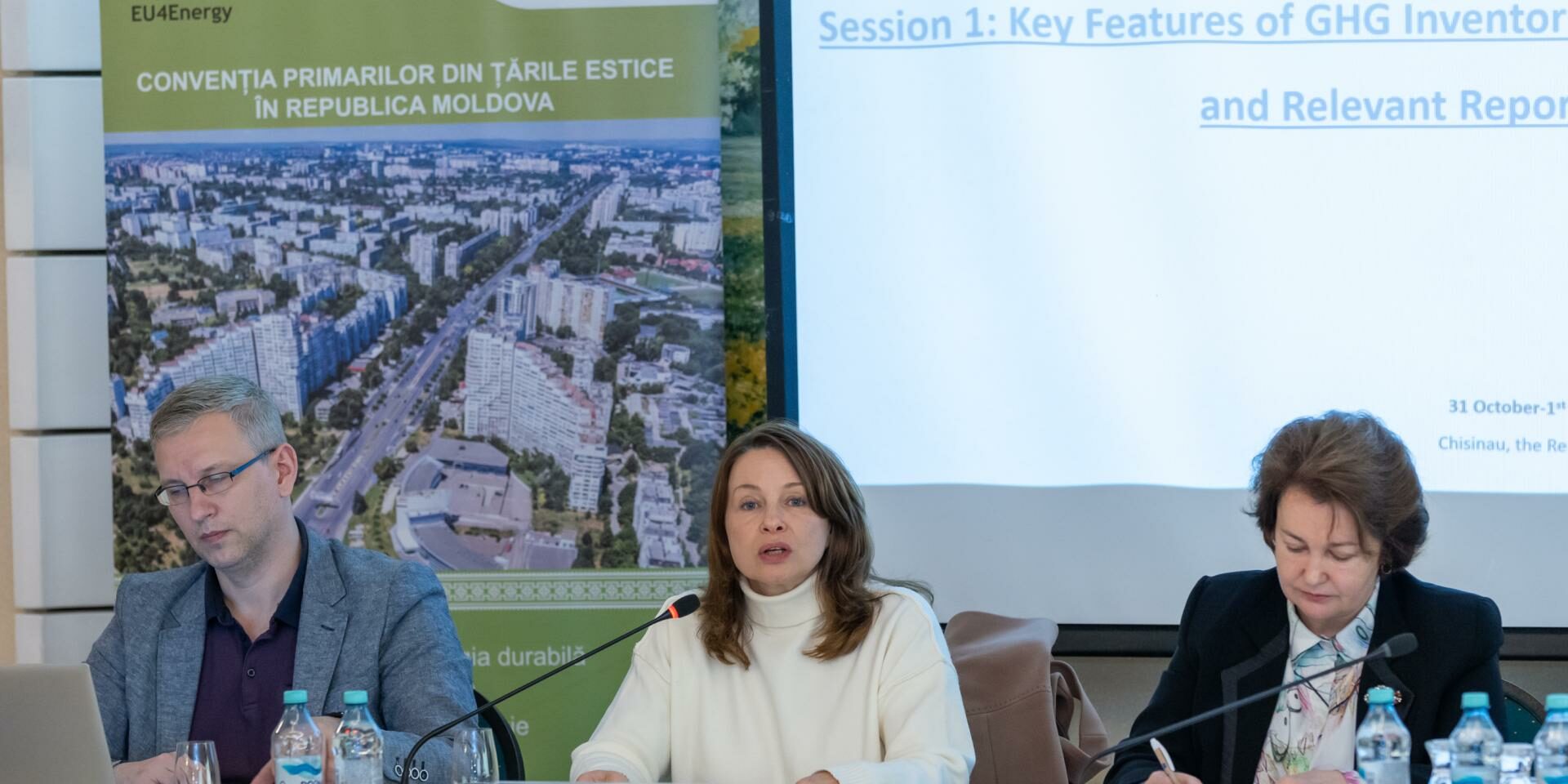The Republic of Moldova is strengthening its monitoring, verification, and reporting (MRV) capacities of greenhouse gas (GHG) emissions to ensure the increased transparency framework in the context of the Paris Climate Agreement and to unlock access to carbon finance. Member institutions of the Moldovan MRV system, including central, local public authorities and state enterprises, are participating during 31 October – 1 November in a training workshop, dedicated to GHG emissions inventory in the energy sector. The workshop is organized by the EU4Climate project, financed by the European Union, and implemented by UNDP Moldova.
“The Republic of Moldova has a robust system for monitoring, verifying and reporting greenhouse gas emissions, approved back in 2018 and updated with the support of EU4Climate in 2021. However, due to reduced institutional capacity, the GHG inventory is carried out by a group by experts supported by development partners. Today’s training is the next practical step towards the gradual taking over by the Environment Agency of the responsibilities of implementing the MRV system,” said Stela Drucioc, Head of the Air Policy and Climate Change Directorate within the Ministry of the Environment.
The workshop examines topics related to key international methodologies, guidelines, and best practices for calculating GHG emissions in the energy sector, key bottlenecks related to the preparation of the national GHG inventory in the energy sector of the Republic of Moldova, EU best practices in data collection from the energy sector and data analysis for national and municipal calculations of GHG emissions in the energy sector, etc. Recommendations were also formulated to improve the process of inventorying GHG emissions in the energy sector, including coordination mechanisms, improving data management procedures, adopting international best practices. The participants also carried out practical exercises to inventory greenhouse gases in the energy sector of the Republic of Moldova.
A similar training on data quality assurance was organized in the summer of 2022 and other workshops dedicated to the waste and forestry sectors are to be organized.
“The global energy crisis and skyrocketing energy prices are a challenge for the European Union as well as for the Republic of Moldova in meeting their climate targets. Such a crisis however, does not lose focus, and the EU is supporting the Republic of Moldova both in overcoming the crisis and in pursuing its own climate targets,” said Solomon Ioannou, Programme Officer within the Delegation of the European Union to the Republic of Moldova.
The first cycle of reporting to the UN Convention on Climate Change (UNFCCC) Secretariat, based on the new MRV mechanism, began in 2020 and the first biennial reports on transparency will be transmitted by the end of 2024.
“UNDP and the European Union have joined efforts and support the Government of Moldova to better monitor its greenhouse gas emissions in line with the relatively new requirement set by the Enhanced Transparency Framework under the Paris Agreement, so to form an essential basis of reliable, transparent, and comprehensive information for understanding current emission levels, for raising the ambition, and tracking progress,” said Andrea Cuzyova, Deputy Resident Representative of UNDP Moldova, at the opening of the workshop.
With a total budget of 8.8 million euros, the EU4Climate project runs from 2019-2022 and has the following components: (i) updating the National Contributions Determined to the Paris Agreement; (ii) the development of national low-emission development strategies towards the year 2050; (iii) introducing and strengthening the framework for monitoring, reporting and verifying greenhouse gas emissions; (iv) alignment with the community acquis in the climate field; (v) integrating the climate dimension into sectoral policy documents, raising awareness and developing sectoral guidelines for the implementation of the Paris Agreement; (vi) attracting climate change investments; (vii) better climate change adaptation planning.



